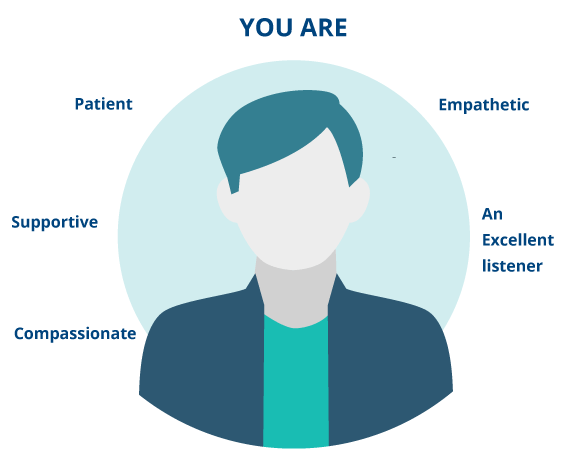The Significance of Mental Health And Wellness: a Deep Study Counseling, Therapy, and Their Benefits
Psychological health significantly shapes individual wellness, impacting ideas, feelings, and actions. Therapy and treatment offer as important avenues for recovery and personal advancement. They use structured support, helping individuals navigate life's challenges. Yet, several continue to be not aware of the details kinds of treatment offered and their distinct advantages. Comprehending these elements is essential for anyone taking into consideration professional mental wellness support. What complies with might brighten courses to strength and fulfillment that several ignore.
Understanding Mental Health And Wellness and Its Impact
Psychological health and wellness is typically forgotten, it plays a crucial function in total health and daily performance - Cognitive Behavioural Therapy. It incorporates psychological, mental, and social factors that affect how individuals believe, really feel, and behave. A person's psychological wellness straight affects their capability to handle stress and anxiety, connect to others, and make options. Poor mental health can bring about different problems, consisting of stress and anxiety, clinical depression, and difficulty in preserving relationships, every one of which can prevent individual and professional growth.Furthermore, mental health and wellness has significant effects for physical health and wellness. Persistent anxiety and unattended mental conditions can add to numerous physical ailments, such as heart problem and compromised immune responses. On the other hand, positive psychological health cultivates strength, making it possible for individuals to handle life's challenges efficiently. Comprehending mental wellness's significance is vital for cultivating helpful environments that promote psychological health, thus improving the high quality of life for individuals and communities alike
The Various Sorts Of Counseling and Treatment
In the domain of mental wellness, various counseling and treatment types deal with diverse demands. Private therapy approaches concentrate on personal concerns through individually sessions, while team therapy characteristics foster shared experiences and support amongst individuals. Understanding these techniques is necessary for choosing the ideal intervention for different obstacles.
Specific Therapy Methods
Countless private therapy techniques exist, each designed to address particular mental wellness concerns and satisfy varying customer needs. Cognitive Behavior Modification (CBT) focuses on identifying and transforming adverse idea patterns, while Psychodynamic Treatment explores unconscious processes and previous experiences. Humanistic Treatment stresses personal growth and self-actualization, fostering a helpful atmosphere. Interpersonal Therapy (IPT) targets relationship concerns and communication patterns to improve emotional wellness. Furthermore, Approval and Dedication Treatment (ACT) encourages customers to approve their ideas and feelings while committing to individual worths. Each strategy provides special strategies and philosophies, enabling practitioners to customize their techniques to the individual, thereby enhancing the therapeutic experience and promoting psychological wellness recovery.
Group Treatment Characteristics
Team treatment characteristics incorporate different healing methods that utilize the power of shared experiences and interpersonal relationships. This form of treatment typically includes diverse groups, fostering a secure setting for individuals to express sensations and thoughts. Secret kinds of group therapy include assistance groups, which supply emotional support; process-oriented groups, concentrating on interpersonal interactions; and psychoeducational teams, targeted at passing on understanding concerning mental health problems. The characteristics within these groups can boost self-awareness, as participants typically assess their habits in connection to others. Furthermore, group therapy promotes a feeling of belonging, reducing sensations of isolation. With shared narratives and cumulative analytical, individuals can establish coping strategies and get understandings, eventually adding to individual growth and healing.
The Role of Counseling in Mental Health And Wellness
Therapy plays a crucial duty in mental wellness by providing different approaches customized to individual requirements. These techniques supply professional support that can bring about substantial enhancements in psychological well-being. Comprehending the various types of therapy can aid people make informed choices regarding their psychological healthcare.

Kinds Of Therapy Techniques
While numerous therapy strategies exist, each offers one-of-a-kind approaches and insights into mental health therapy - Mental Health Resources. Among the most popular are cognitive-behavioral treatment (CBT), which concentrates on modifying unfavorable thought patterns; psychodynamic treatment, which explores subconscious procedures and childhood experiences; and humanistic techniques, highlighting personal growth and self-actualization. In addition, solution-focused short treatment focuses on finding remedies in today rather than diving right into problems. Team treatment promotes area and shared experiences, while family therapy addresses relational characteristics within familial structures. Each method deals with various needs, lining up with specific preferences, issues, and healing objectives. Understanding these techniques aids customers make educated options regarding their mental health and wellness journey and promotes effective therapy customized to their unique situations
Benefits of Specialist Guidance
Countless individuals take advantage of expert support in handling their mental health challenges. Therapy offers a risk-free room for customers to explore their ideas and sensations without judgment. This therapeutic environment promotes self-awareness, permitting individuals to identify patterns in their habits and establish much healthier coping methods. Expert assistance also provides accessibility to evidence-based methods that can alleviate symptoms of anxiety, depression, and other mental health and wellness concerns. Counselors can help in establishing practical goals and provide assistance in attaining them, boosting total health. The collaborative relationship in between therapist and client is crucial, as it promotes liability and encourages personal growth. Ultimately, professional guidance plays an essential function in steering mental health journeys, bring about boosted psychological resilience and life satisfaction.
Advantages of Therapy: Healing and Development

Just how to Pick the Right Specialist or Counselor
How can one navigate the usually frustrating process of choosing the appropriate therapist or therapist? Identifying personal requirements is crucial; people ought to consider their particular concerns, whether stress and anxiety, connection, or anxiety obstacles. It is helpful to study different therapeutic techniques, such as cognitive-behavioral therapy or psychodynamic treatment, to more discover a suitable match.Next, possible clients need to look for referrals from relied on sources or utilize on the internet directories. It is vital to examine therapists' qualifications, including their education and learning, licensing, and areas of specialization. Scheduling preliminary special info assessments can assist assess compatibility, allowing people to assess communication styles and individual comfort.Finally, logistical factors, such as area, accessibility, and fees, ought to likewise be taken into consideration. By attentively evaluating these components, one can make a notified choice, eventually fostering a therapeutic relationship that supports psychological health and wellness and individual growth.
Overcoming Preconception: Embracing Mental Wellness Assistance
While societal mindsets towards psychological health and wellness have advanced, preconception still presents a substantial obstacle for many looking for assistance. This preconception frequently manifests as mistaken beliefs bordering mental disorder, leading people to really feel embarassment or worry concerning their struggles. Numerous individuals wait to pursue counseling or therapy due to worries concerning being judged or labeled. Conquering this preconception is essential for cultivating a helpful environment More Bonuses where people can openly discuss their psychological health needs.Communities and companies play an essential function in this change by promoting awareness and education regarding mental wellness problems. Initiatives that highlight personal tales can humanize these experiences, urging others to look for assistance without concern. As approval expands, people may feel a lot more encouraged to accept psychological health and wellness support, recognizing it as an important element of general wellness. By taking apart preconception, society can grow a society of understanding, empathy, and aggressive mental healthcare.
Approaches for Preserving Psychological Wellness Beyond Therapy
Although treatment offers important support, maintaining psychological wellness outside of sessions is similarly important. People can execute a number of techniques to sustain their mental health and wellness. Normal physical task plays an important duty, as exercise promotes the launch of endorphins, which enhance state of mind. Additionally, a balanced diet regimen abundant in nutrients can substantially affect emotional security and energy levels.Practicing mindfulness and meditation helps people manage anxiety and establish better self-awareness. Developing a constant sleep routine is also basic, as quality remainder is vital for cognitive feature and psychological regulation.Engaging in social tasks fosters connection and minimizes feelings of isolation. Going after passions or hobbies can give an innovative outlet and boost self-confidence. Lastly, exercising and setting sensible objectives self-compassion permits people to cultivate strength. By integrating these techniques right into day-to-day life, individuals can effectively support their mental well-being past treatment sessions.
Often Asked Inquiries

How Can I Tell if I Required Treatment?

Figuring out the need for therapy usually includes acknowledging persistent sensations of sadness, anxiousness, or frustrating stress. If everyday working becomes tough or coping systems stop working, looking for expert assistance may be a useful step forward.
What Should I Expect in My First Therapy Session?
In the first treatment session, people can anticipate an intro, discussion of their factors for looking for help, and an overview of the specialist's technique, creating a foundation for future discussions and establishing convenience in the healing area.
Are Online Therapy Sessions as Effective as In-Person Ones?
Research indicates that online treatment sessions can be as effective as in-person ones. Factors such as the therapist's credentials, customer involvement, and the healing partnership greatly influence results, no matter of the medium utilized.
Can Therapy Assist With Relationship Issues?
Therapy can assist people in dealing with relationship issues by giving tools for interaction, understanding feelings, and solving conflicts. Cognitive Behavioural Therapy. It promotes healthier characteristics and encourages personal growth, eventually cultivating stronger, more fulfilling links in between companions
For How Long Does Therapy Normally Last?
Treatment period varies substantially based upon individual needs and objectives. Commonly, sessions might last from a couple of weeks to a number of months, with some people involving in recurring treatment to resolve lasting issues and individual growth. Cognitive Behavior Therapy (CBT) concentrates on determining and changing adverse idea patterns, while Psychodynamic Treatment discovers past experiences and subconscious processes. Trick kinds of group treatment consist of assistance groups, which give emotional support; process-oriented groups, concentrating on interpersonal communications; and psychoeducational teams, intended at giving knowledge regarding mental health concerns. Amongst the most prominent are cognitive-behavioral treatment (CBT), which focuses on altering unfavorable thought patterns; psychodynamic treatment, which checks out subconscious procedures and childhood years experiences; and humanistic methods, highlighting individual development and self-actualization. Team treatment fosters neighborhood and shared experiences, while household treatment addresses relational characteristics within familial frameworks. It is useful to research study different restorative techniques, such as cognitive-behavioral therapy or psychodynamic treatment, to find an ideal match.Next, prospective customers ought to look for referrals from relied on sources or use online directories.